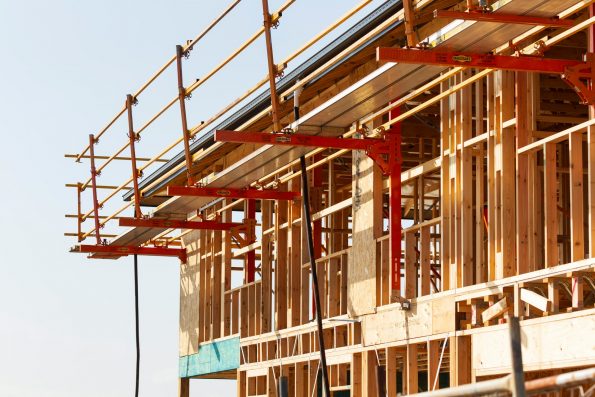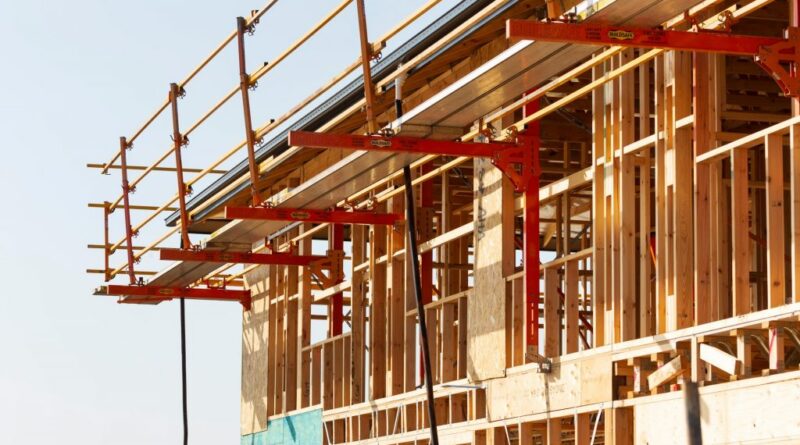Building the Perfect Business Premises: 5 Tips to Make it Perfect
Most companies start off renting premises or office space. As time goes on, they’ll outgrow that and want a place to call their own. Buying somewhere is a common option, but you can always consider building an office premises. This offers more than a few benefits.

Image Credit: Troy Mortier from Unsplash.
You’ll make sure it’s fit for purpose and perfect for your needs. It’ll take a decent bit of work, though, and that’s why so many companies avoid it.
The benefits can far outweigh the drawbacks, and you could be set on taking the plunge on it. When you do, it’s worth making sure you do it right. Most of the steps to build an office premises are relatively obvious, but it’s also worth using a few tips while you’re at it.
Five of these could have more of an impact than you’d think.
Building the Business Premises: Tips to Use
1. Budget Wisely
One of the main reasons entrepreneurs decide to buy a premises instead of building is because of the perceived cost. Many believe this is a prohibitively expensive prospect. It doesn’t have to be, though. By being smart with your budget, it could be more affordable than you’d think.
Know how much you’ll have to spend on the project, as well as exactly where all of this money is going. Avoid going with the cheapest option for anything while you’re at it. Cheap usually means low-quality, and you’ll be better off investing in options that’ll actually last you years or decades.
2. Take Care of Essential Factors
Speaking of your budget, make sure all of the essential factors are taken care of. There’ll be plenty of these to focus on, many of which depend on the kind of business you run. The materials you use for the project will be one of the more notable of these. Make sure these are high-quality.
Finding the right supplier for these shouldn’t be too difficult. Butler Parts can be a great option if you’re building a manufacturing facility, for example. Other essentials can include connecting to utilities and the equipment you’ll need to work from your new facility. Take the time to sort them out.
3. Ensure Compliance
Speaking of essential factors, legal compliance shouldn’t be overlooked. You’ll have to make sure building codes and regulations are adhered to from the outset. While some of these can depend on the operations planned for the premises, others apply to all types of building and company. Make sure you’re aware of all of them.
These codes and regulations can be relatively confusing, so it’s often worth hiring a professional to help with this. Someone familiar with the legalities surrounding your business premises is recommended. That way, you’ll avoid a few headaches later on and needing to change your business premises after it’s built.
4. Design for Productivity
Once your new premises are complete, you and your employees will naturally start working from it. Make sure you keep work needs in mind when you’re designing the premises. Aim to design with productivity in mind before you start building. It’ll help quite a bit once you start working from it.
The easier it is for employees to do their jobs, the more productive they’ll be in your new premises. A lot of this depends on your workflows and needs, so pay particular attention to them. Make sure to include communal areas here so your employees can take the breaks they need.
5. Think Long-Term
Speaking of when your premises are built, make sure you think long-term with it. Designing the premises for what you need now could be a mistake. You’ll also need to consider what your future needs will be. By designing with both in mind, you’ll save yourself a decent bit of stress later on.
You could need to scale up your premises as your company keeps growing. That’ll be hard to do if you haven’t properly planned for it. Look at your business’ long-term projects, and determine what you could need with your premises later on.
Building the Perfect Business Premises: Wrapping Up
Building a business premises is appealing for multiple reasons and offers more than a few benefits. Once your business is large enough, it’s more than worth considering. When you do, make sure you know what you’re doing. Take a smart approach with it.
Outside of taking certain steps, it’s also worth using a few tips. They’ll help you make sure your new facility is perfect for your needs, while also being functional and effective to use long-term.

